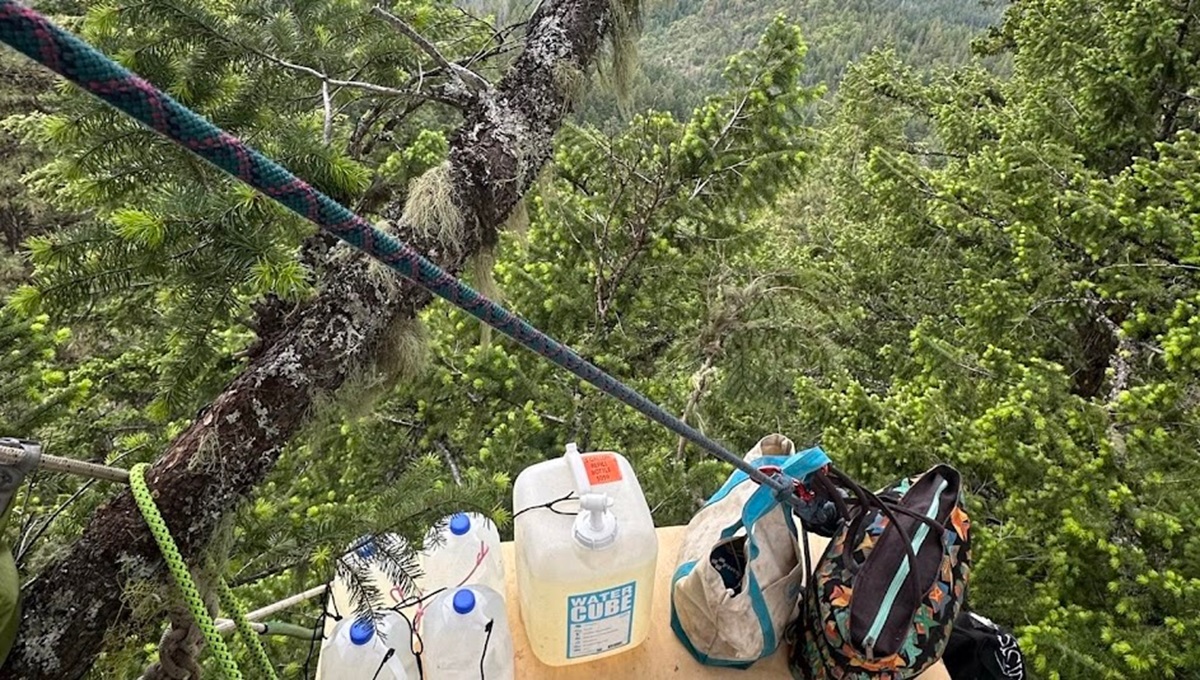Filed under: Action, Climate Change, Environment, Land, Northwest

Report on blockade by community activists against logging of old growth forest in Southern Oregon.
Community activists have begun an occupation of an old growth tree slated to be cut on federal Bureau of Land Management (BLM) land outside of Rogue River in Southern Oregon. Activists are protesting the agency’s practices of targeting mature and old growth forests for logging, specifically utilizing roadbuilding loopholes to aggressively log threatened ecosystems in the Rogue Gold Forest Management Project. The occupation comes just a few weeks after a successful protest against the agency’s nearby Poor Windy Timber Sale, where activists won a concession preserving a swath of old growth trees after close to a month of tree sitting.
“We were inspired by the victory at Poor Windy to take a stand against further public lands logging in our community,” said Topaz Thomson, a community organizer and the person occupying the tree. “Unethical practices are not unique to one or two projects, but rather an institutional element of how the BLM manages forests in Oregon.”
The Rogue Gold project targets over 2,000 acres for commercial logging, including significant amounts of old growth and mature forests. Community groups and environmental organizations have been publicly opposing this project since it was originally proposed in 2021, with logging moving forward despite active litigation.
“People have been going through all of the prescribed routes to express opposition to this logging project for years, yet the BLM ” said Larry Berg, a resident of Jackson County. “Our direct action is the last remaining option open to us to preserve this natural space which many people in our community love and enjoy.”
The forest where activists have set up their tree-sit occupation is located near the communities of Rogue River and Gold Hill. It is a common area for recreation, including mountain-biking and hiking. Industrial logging increases both wildfire severity and frequency, which further threatens rural communities’ way of life. Logging is also the single largest source of carbon emissions in Oregon. The sale is just one of many contentious logging projects that the BLM have proposed in Oregon in recent years.
“BLM logging projects like Poor Windy and Rogue Gold are targeting some of the last remaining stands of old, carbon-rich trees left in Oregon,” said Sam Shields, an organizer. “Cutting down trees does not make forests more resilient to fire, as the BLM wants us to believe, but actually has the opposite effect – increasing wildfire risk, endangering our communities and driving the climate crisis.”
The project area is also home to endangered species, including the Northern Spotted Owl, Franklin’s bumble bee, and Coho Salmon. In addition to compromising the habitat of wildlife and increasing wildfire risk, commercial logging is known to be damaging to soil and waterways.





